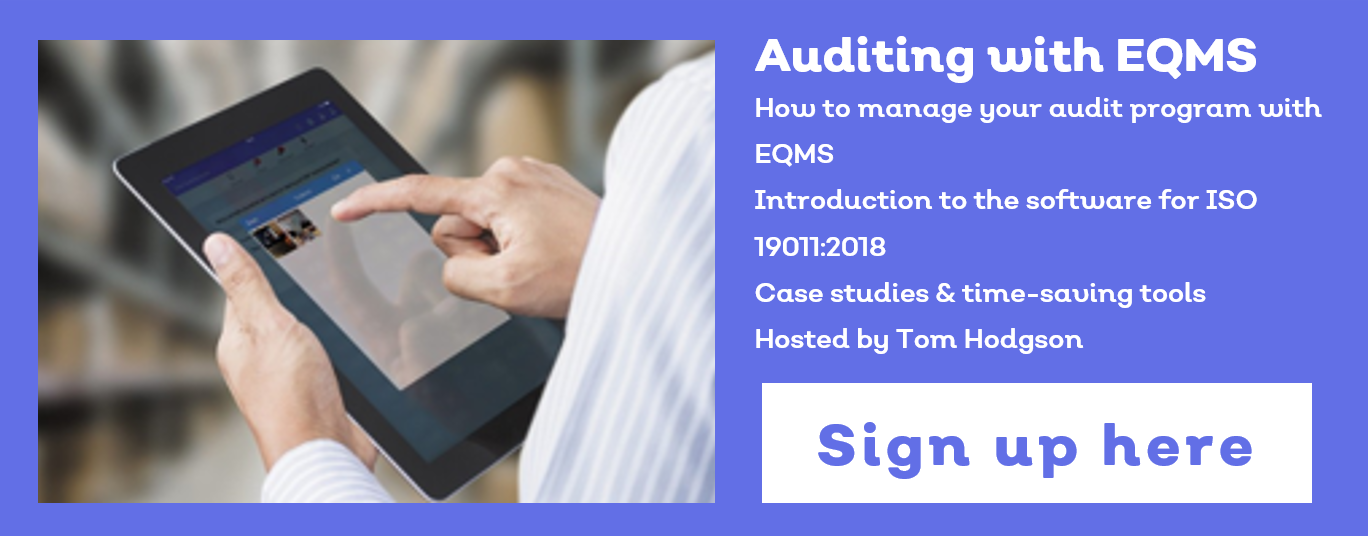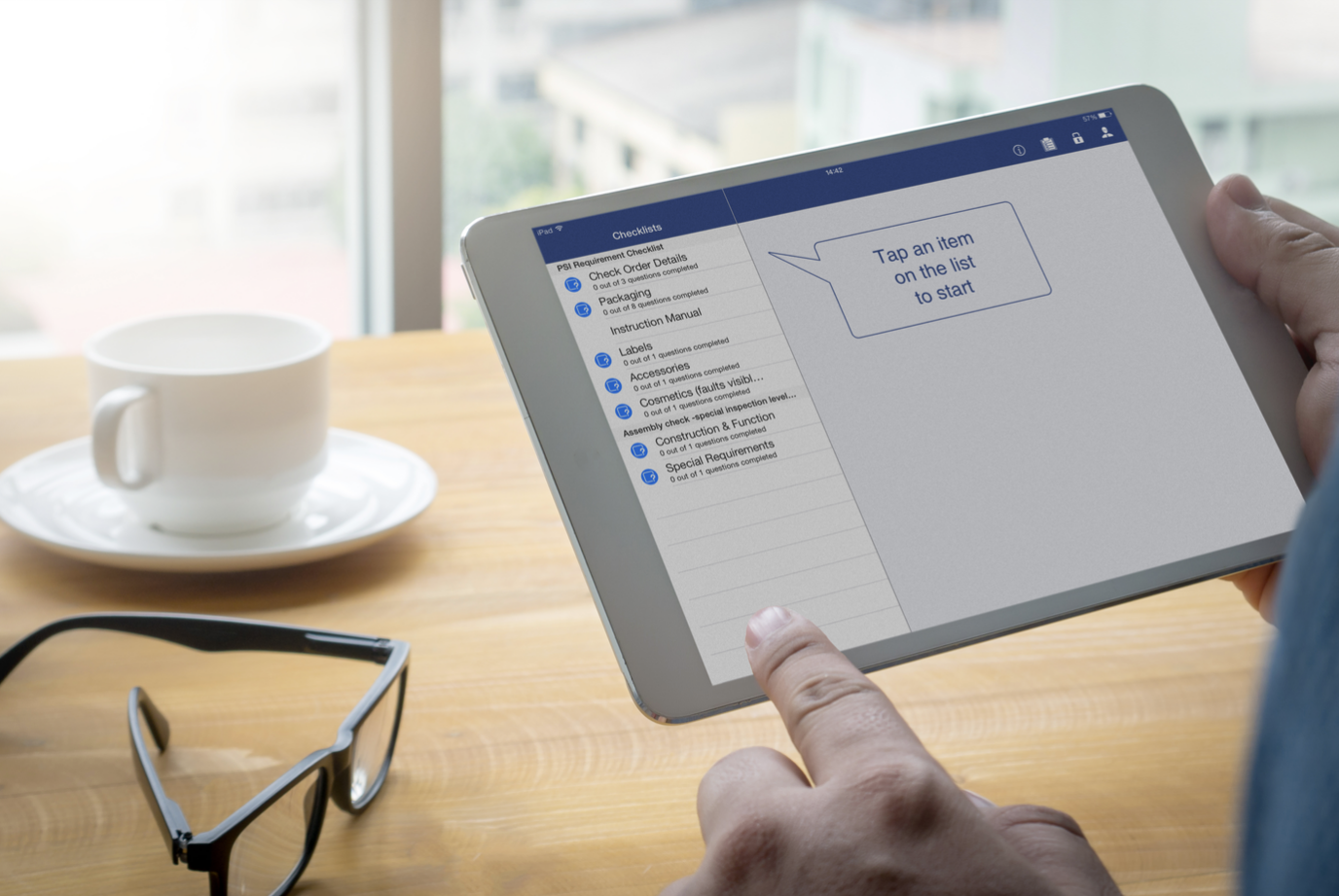Want to contribute to this article?
On Wednesday 20th March, Qualsys partnered with CQI Yorkshire to host an event for management system auditors to share tips, tools and techniques, and enhance knowledge on the revised ISO 19011:2018 standard.
If you couldn't make the event, we've shared 16 of the tips to implement the ISO 19011:2018 revision below.
ISO 19011:2018 revision - tips to implement changes
Hugh Everson - Welcome
The Chair of CQI Yorkshire opened the presentations.
Tip 1: When auditing, the language we use is so important
ISO 19011:2018 - The good, the bad and the ugly
Managing Director of Kingsford Consultancy Services, Richard Green, delivered a lively presentation on how, what, and why ISO 19011 has changed in the latest revision.
Tip 2: To meet ISO 19011:2018 requirements, every audit must be given a specific objective
Tip 3: There's now less practical guidance in ISO 19011:2011
In ISO 19011:2011, Annex A provided actionable advice on how to audit different management systems. However, there was a decision to remove this advice in ISO 19011:2018 because there are now 50 different ISO management system standards. However, for people whose primary role isn't always auditing, this isn't particularly helpful, so Richard Green is putting together a guidance document.
Inspection readiness: James Pink
James Pink then shared how his career path into auditing and inspections was "the result of a non-conformity."
Tip 4: Let culture prevail
Everyone has those people in an organisation who they say "I wouldn't put them in front of an auditor." James advised changing your way of thinking. You need to create a culture of openness. It's important you put people who are critical to your business in front of auditors.
Tip 5: The best auditors look for interactions, not just sections
Tip 6: Don't make a load of changes if you get a recommendation or NCR
Just because someone has recommended something to add or change to your management system, making the change might not be good to your company. It may be that what you have works for your business. Hold your ground and think - do we need this?
Tip 7: Your company is an F1 car
F1 cars are changed in seconds. However, this takes hundreds of hours of preparation. You need your internal audits to be managed with same high frequency and rigour to be inspection-ready on race day.
How to audit leadership: Kate Armitage
Kate, Head of Quality assurance at Qualsys who supply ISO 19011:2018 audit management system software, tackled the difficult subject of auditing leadership when you need them to change behaviour.
Tip 8: A leadership audit doesn't necessarily involve talking to leadership
Walk around the company and see for yourself what is going on. Take the temperature when in the business - do things add up?
Tip 9: Be really careful when using technical language
We're all guilty of using jargon and technical language. People switch off. Kate realised a real transformation in leadership engagement by simplifying language.
Tip 10: Ask for a 360 review
Get co-worker feedback about your own performance. Encourage leaders at all levels of the organisation.
Tip 11: Keep your eyes and ears open, follow your nose
Be bold, friendly, and kind. Management should be readily available, prepared, and ‘excited’ to participate in the opening and closing meetings.
Kate will be hosting a live online webinar 2nd April - Sign up here
Auditing for risks and opportunities: Chris Owen
Chris Owen shared the risks and opportunities which can be discovered through effective auditing methodologies.

Tip 12: Give people a tool to raise risks and opportunities
People in your organisation need to have a voice. It's not just down to you as an auditor to raise risks and opportunities. Change the language around audits to learning opportunities.
Tip 13: Don't assume emails have been read
The average person receives 137 emails a day. When following up audit findings, don't assume emails have been read. Either talk to them or use your quality management system for a log of all activity.
Supply and supply chain auditing

Sharing how a supplier audit went sour the previous week, Kate Krachai advised how supplier audits are about a lot more than ticking a box. It's about strategic relationship management.
Tip 14: Audits tell you whether you actually want to work with that supplier
Do you actually want to work with that supplier? You will learn a lot about the suppliers when you do audits. It's a relationship management process.
Tip 15: Apply a risk-based approach to auditing
If you're buying USB sticks, you're going to need a different approach than an ingredient for a pharmaceutical. Apply a risk-based approach.
CQI Membership
Julian Jack wrapped up the day with a presentation on how being a CQI member does more than just enhancing your career.

Tip 16: CQI members earn 14% more and are happier in their roles
Want to see how Qualsys's auditing software can help you?
 On 4th April at 2pm (BST), Tom Hodgson will be demonstrating the different ways to use EQMS for audits and inspections in a live online webinar.
On 4th April at 2pm (BST), Tom Hodgson will be demonstrating the different ways to use EQMS for audits and inspections in a live online webinar.
To join the session, sign up here.













Share your thoughts on this article